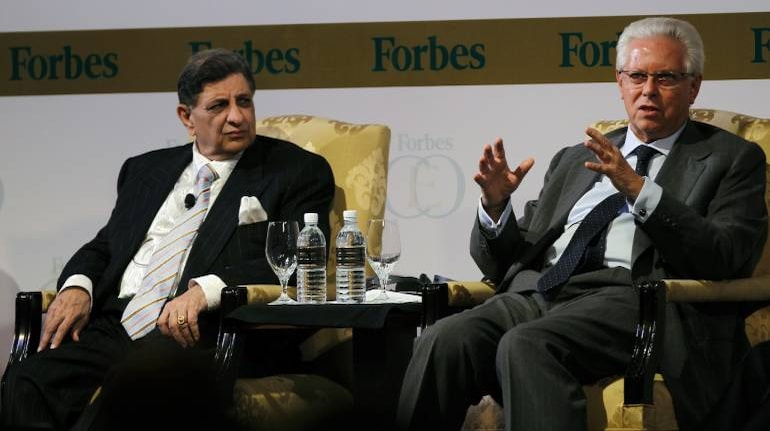

On June 4, British drugmaker AstraZeneca said it has partnered with Serum Institute of India to supply 1 billion doses of University of Oxford's potential novel coronavirus, or COVID-19, vaccine to low-and-middle-income countries (LMICs). Serum will provide 400 million doses before the end of 2020 as part of the arrangement.
The significance of the partnership is that if all goes according to plan, millions of Indians will get their hands on COVID-19 vaccine shots produced by Serum well before the end of 2020.
Partner of choiceThe AstraZeneca partnership is the latest in a series of arrangements that Serum, a 50-year-old privately-held company, has inked in recent months as the coronavirus pandemic spread across continents. Besides securing a licence to mass produce the University of Oxford vaccine, Serum has built an alliance with US biotech firm Codagenix. The latter will develop a live-attenuated vaccine (a weakened virus that doesn't cause disease but triggers immune response) to fight COVID-19, and Serum will invest in clinical trials, manufacturing and distribution.
Serum has also tied up with Austrian biotech company Themis Bioscience for another COVID-19 vaccine candidate that uses measles virus as a vector to inject an antigen or protein of SARS-CoV-2.
That’s not all. Serum also entered into a deal with Novavax. The Indian company sold its Czech Republic-based Praha Vaccines for roughly $167 million to Novavax, an American vaccine developer, which will produce a COVID-19 vaccine candidate in that facility. Serum and Novavax have partnered for a malaria vaccine and though it is still not clear whether Serum will extend the partnership to a COVID-19 vaccine, the possibility can't be ruled out.
Last but not the least, Serum's BCG vaccine is being used in trials in Australia and Germany to find out whether it helps in preventing people from acquiring COVID-19.
Look at it this way. Serum has had the wind at its back in the fight against the virus.
To be sure, none of the vaccines mentioned above has been approved by regulators, and are in various stages of development. And there is always the risk of failure.
Yet, the indisputable truth is Serum has emerged as the frontrunner in India's efforts towards a COVID-19 vaccine.
"Serum has scientific expertise, financial strength, ability to produce vaccines at massive scale, and a large distribution network. All these make it attractive for potential licencing deals," said a pharma analyst. He did not want to be named.
Adar Poonawalla, CEO of Serum, said the company had earmarked $100 million for the vaccine project and would look for support from international funding agencies as well.
It isn't vaccines alone. Poonawalla, a second-generation entrepreneur, has invested in a little-known Pune-based diagnostic company known as Mylab. The funding helped Mylab to become one of the largest RT-PCR test kit providers in India, and significantly reduce import dependence.
Serum has bagged partnerhips almost at the pace at which Jio Platforms, the digital unit of Reliance Industries, has attracted investments. How did Serum become a lodestar for global pharmaceutical companies?
Also read: A sovereign wealth fund buys into the Jio vision
The company is no pharma slouch, but it rarely hogged the headlines like say, Dr Reddy’s Laboratories, Cipla or Biocon. Indeed, it would not be an exaggeration to say that only pharma watchers knew about the company until the virus struck.
It’s the industry, stupidTo make sense of Serum’s recent momentum, one has to understand how the vaccine industry functions.
There are more than 100 potential vaccines under development for COVID-19 and most of these are launched by small biotechs and academic institutions. It requires huge investment to take a vaccine into late-stage clinical trials and produce at mass scale.
Vaccine manufacturing is also a complex process with stringent regulatory expectations. Importantly, the vaccine against the pandemic has to be affordable.
Most biotech firms have neither the wherewithal nor the experience to undertake end-to-end vaccine development. They all need someone to help them.
This is where Serum has emerged as a partner of choice. It trumps several other companies because it has the expertise in producing vaccines. It has the largest portfolio of World Health Organisation (WHO) pre-qualified vaccines. The company actually manufactures 60-70 percent of all vaccines sold globally.
Serum also has deep pockets. The company invested Rs 4,000 crore to build the world's largest multi-functional product facility in Pune. It can produce up to 500 million doses of vaccines a year.
It clocked a revenue of around Rs 5,900 crore in FY19, according to Business Insider. That is six times the revenue of its nearest rival, Hyderabad-based Biological E, which generated Rs 952.4 crore in FY19.
It is also well connected with multilateral funding agencies and governments.
In recent high-level meets held by health ministry to discuss about crucial drug regulatory reforms, the government invited two executives from the pharma industry to provide inputs. One was Pankaj Patel of Zydus Cadila. The other? Poonawalla.
The Poonawallas are among a few corporate leaders in India who have clout in government circles. Now, Serum's high-volume, low-cost vaccine business model has brought the Poonawallas closer to Microsoft founder Bill Gates.
Gates through his Bill & Melinda Gates Foundation wields enormous influence on global healthcare. His foundation works closely with Serum in funding their critical vaccine development projects.
As it happens, Serum is also ambitious. With a capacity to produce more than 1.5 billion doses, it is looking to achieve a revenue of Rs 10,000 crore by 2022.
Most profitable vaccine enterprise"The Poonawallas may be flamboyant in their lifestyles, but they are very conservative when it comes to running the business," said a person at a rival vaccine company who knows the family.
The Poonawallas own an enviable art collection, with works by eminent artists such as Tyeb Mehta, MF Husain, FN Souza, VS Gaitonde, SH Raza, among others. They also have artworks of internationally renowned artist such as Pablo Picasso, Claude Monet, Auguste Renoir, Marc Chagall and Salvador Dali.
Adar told reporters two years ago that the family owned an art collection worth nearly $70-80 million, which was built partly as a passion and partly as an investment.
The family also flaunts their sports cars and private jets, besides organising concerts and fashion shows involving international celebrities for various charitable causes.
Horse breeding to vaccinesIt was in the mid 60s that a young Cyrus Poonawalla (the father of Adar), whose family has strong ties with horse racing and breeding through the family’s stud farms, realised that horse racing had "no future in the socialist India of that time".
Also Read: Here is why horse breeding is the secret behind success of Cyrus Poonawalla's vaccine business
Reality dawned on the senior Poonawalla after his experiments to build a sports car modelled on Jaguar-D type for India went nowhere. He felt making a product for the masses would be a smart move.
At the time, the Poonawallas were donating the farm’s retired horses to the government-owned Haffkine Institute in Mumbai, which manufactured vaccines from horse serum.
A chance conversation with a vet at the farm led Poonawalla to discover that the mass product he was thinking about could be made at his own stud farm.
Serum was launched in 1966 to produce vaccines. The company launched its first therapeutic anti-tetanus serum within two years, and began producing the anti-tetanus vaccines.
There was no turning back.
Ambitious company"Under Adar (Poonawalla), Serum is showing some signs of ambition, by investing ahead of the curve and a strong urge to enter the highly regulated markets like Europe and US," a person familiar with the company’s operations said.
A second person who tracks Serum said the company is one of the most profitable Indian companies. “And the business of vaccines unlike pharmaceuticals is much more stable."
Both requested anonymity.
The Poonawallas also have a strong desire to use their expertise to help India at a time when the country was ravaged by COVID-19 pandemic, the second person added.
But the person above wasn't fully convinced about Serum's bet on the University of Oxford vaccine. The latter’s vaccine failed to protect vaccinated monkeys from being infected by the virus, according to him.
The University of Oxford vaccine is based on Chimpanzee adenovirus as a vector, known to protect animals from pneumonia. Adenoviruses causes common cold. The virus is fused with certain proteins of SARS-COV-2 and is delivered as a vaccine.
A head of the biologics division of a pharmaceutical company, who is based in Pune, told this reporter that sometime ago he found it difficult to poach talent from Serum. "Serum is one of the better paymasters in the industry, offering a stress free and stable work environment. People don't want to jump the ship so easily," he said.
Discover the latest business news, Sensex, and Nifty updates. Obtain Personal Finance insights, tax queries, and expert opinions on Moneycontrol or download the Moneycontrol App to stay updated!